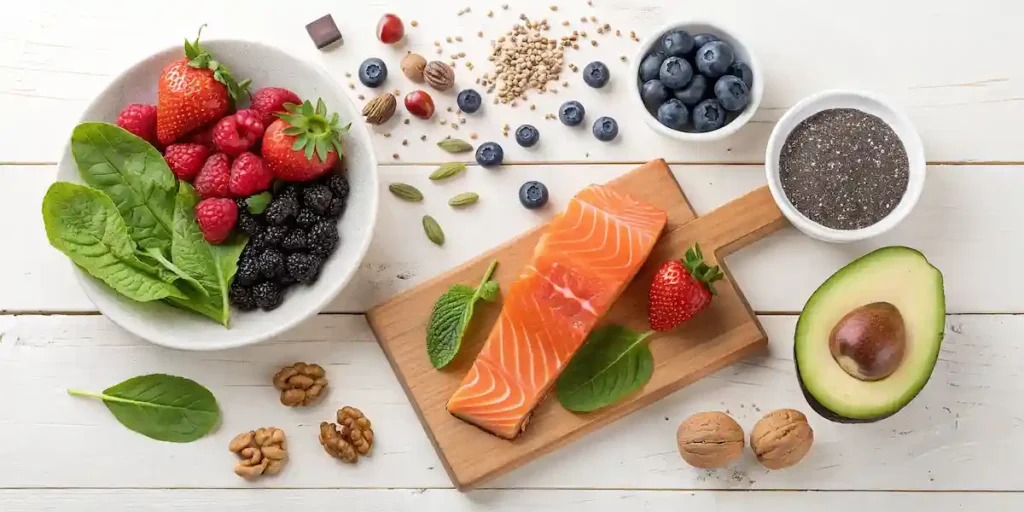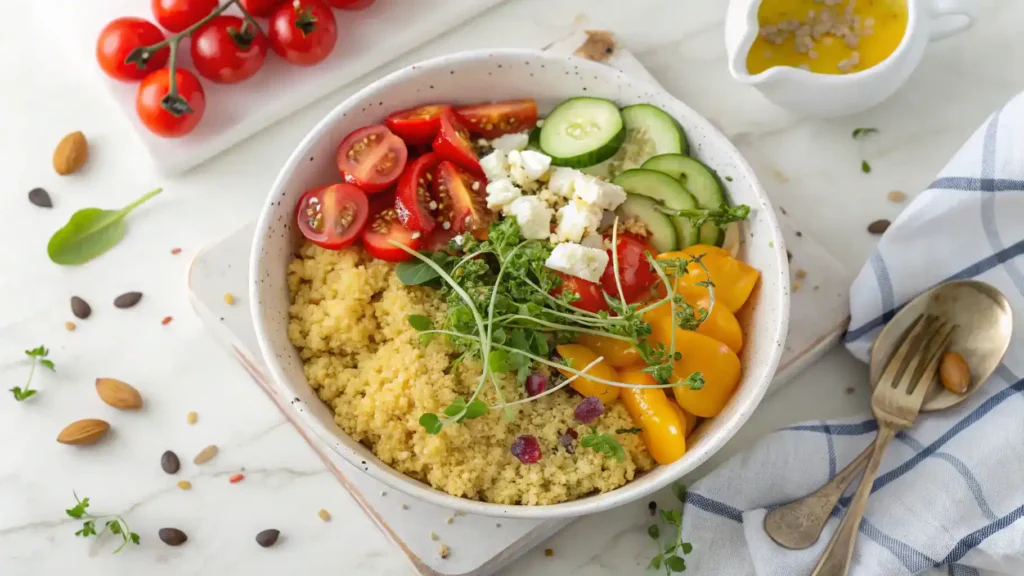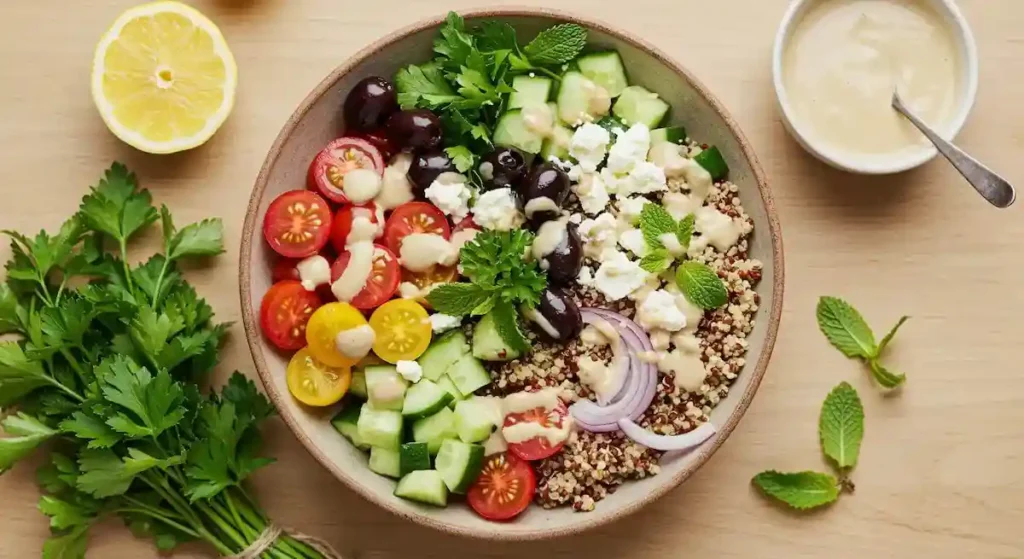Here’s what happened last Tuesday: I’m sitting at my kitchen table at 3 PM, staring at an empty coffee mug and feeling like I’m swimming through mental fog. My energy had crashed after lunch, my mood was somewhere between irritable and defeated, and I couldn’t shake the feeling that my brain was running on fumes. Sound familiar?
That’s when it hit me I’d been living on sugary snacks, rushed meals, and way too much caffeine. Could what I was eating actually be affecting how I felt mentally? Turns out, the answer is more nuanced than I expected.
Let me be upfront about something: I’m not a doctor, nutritionist, or mental health professional. I’m just someone who got curious about the connection between food and mood after experiencing those afternoon energy crashes one too many times. What I discovered through research and personal experimentation might surprise you and it definitely changed how I approach both my plate and my mental well being.
The Food Mood Connection: What We Actually Know

Here’s the thing about nutrition and mental health research it’s fascinating, but it’s also complicated. While we have compelling evidence that diet can influence mood, energy, and even symptoms of anxiety and depression, most studies are still relatively small or observational. We’re not talking about miracle cures here; we’re talking about one important piece of a much larger mental health puzzle.
That said, what we do know is pretty interesting. Your gut produces about 90% of your body’s serotonin that’s the neurotransmitter often called the “happiness hormone.” Your brain and gut are constantly communicating through what scientists call the gut brain axis. When you eat, you’re not just feeding your body; you’re potentially influencing your mental state too.
The research suggests that certain eating patterns, particularly those rich in whole foods, omega-3 fatty acids, and fermented foods, may support better mental health outcomes. But here’s what I want to emphasize: diet is one tool in the mental health toolbox, not a replacement for professional help, therapy, or medication when needed.
Foods That May Support Mental Wellness
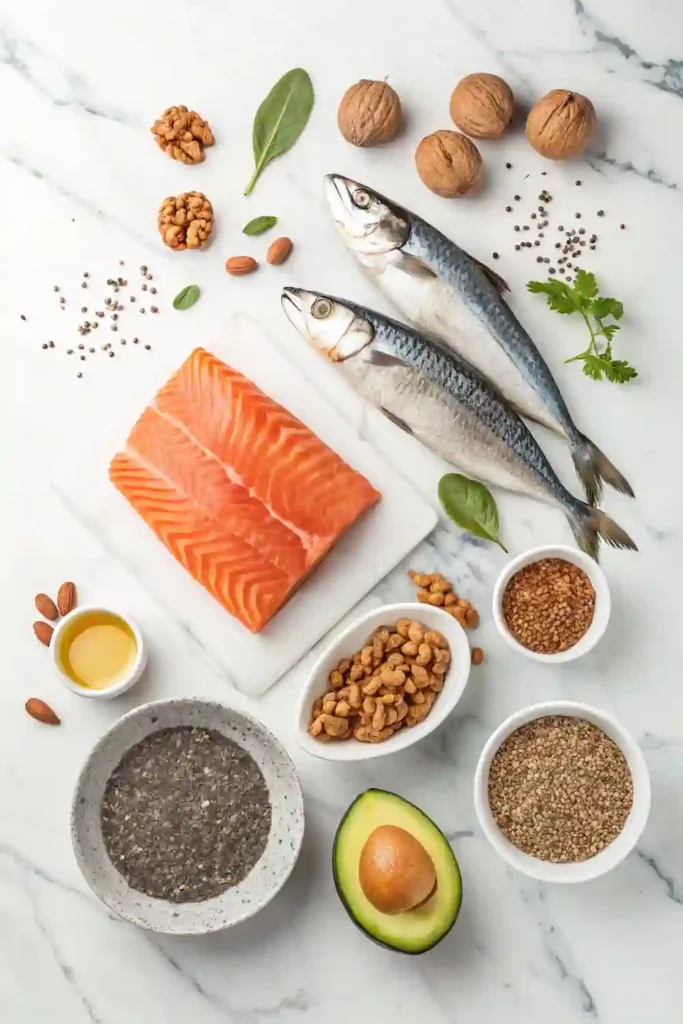
After diving into the research and experimenting with my own eating habits, I’ve identified several categories of foods that seem to make a difference in how I feel mentally. Remember, everyone’s body is different, but these are backed by at least some scientific evidence:
Omega-3 Rich Foods
Fatty fish like salmon, sardines, and mackerel contain omega-3 fatty acids that may help reduce inflammation in the brain. Some studies suggest these fats might help with depression and anxiety symptoms, though the evidence is still developing. If you’re not a fish person, walnuts, flaxseeds, and chia seeds are plant-based options.
Fermented Foods
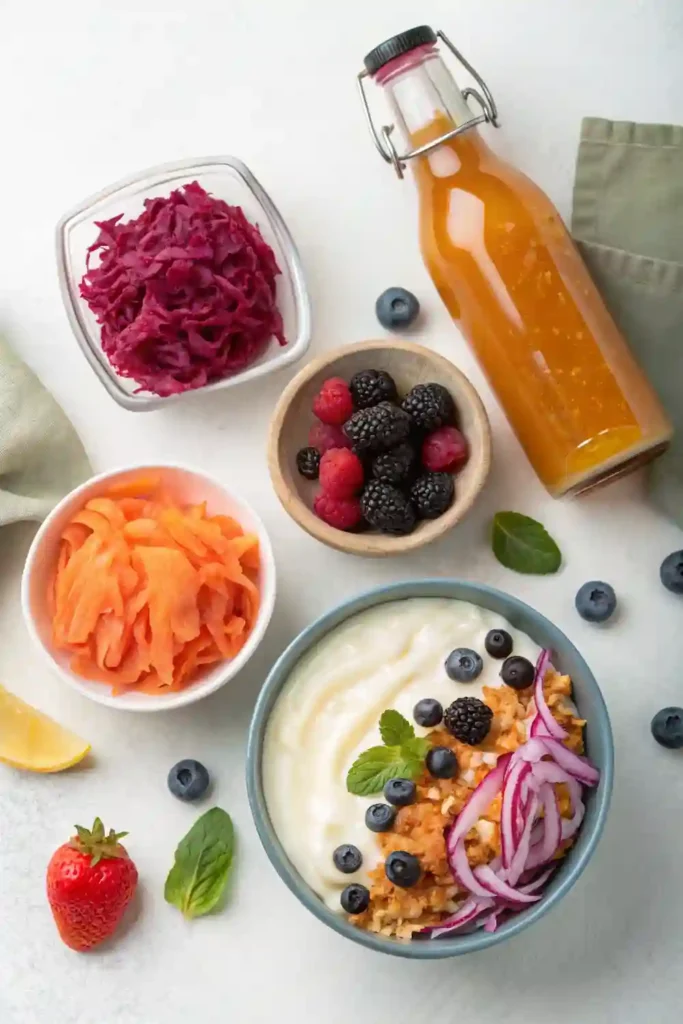
Yogurt, kefir, sauerkraut, kimchi, and kombucha contain probiotics that may support gut health and remember, your gut health is connected to your brain health. I started adding a small serving of plain Greek yogurt to my breakfast routine, and while I can’t prove causation, I do feel more mentally balanced on days when I include these foods.
Complex Carbohydrates
Whole grains, sweet potatoes, and legumes provide steady energy and may help with serotonin production. Unlike simple sugars that cause energy spikes and crashes, complex carbs give your brain a more consistent fuel source. I noticed a huge difference when I switched from sugary afternoon snacks to an apple with almond butter.
Antioxidant-Rich Foods
Berries, dark chocolate, green tea, and colorful vegetables contain compounds that may protect your brain from oxidative stress. The research on antioxidants and mental health is still emerging, but eating a variety of colorful foods certainly doesn’t hurt.
Brain-Healthy Snacks You Can Actually Make
Let me share some simple snack ideas that I’ve found helpful for maintaining steady energy and mood throughout the day. These aren’t miracle cures, but they’re practical options that support stable blood sugar and provide nutrients your brain needs:
Mood-Boosting Trail Mix
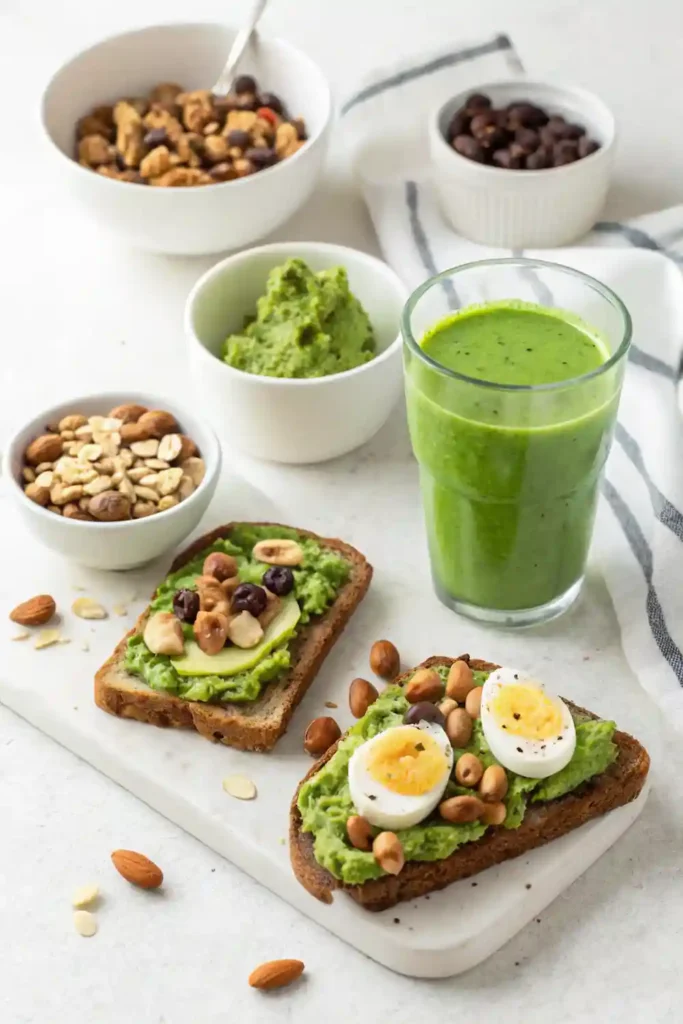
Ingredients:
- 1 cup walnuts (omega-3s)
- 1/2 cup pumpkin seeds (magnesium)
- 1/4 cup dark chocolate chips (antioxidants and a mood boost)
- 1/2 cup dried berries (antioxidants)
Instructions: Mix everything together and store in an airtight container. Keep portions to about 1/4 cup – this is calorie dense but nutritious.
Stress-Fighting Smoothie
Ingredients:
- 1 cup spinach (folate)
- 1/2 banana (potassium and natural sweetness)
- 1/2 cup Greek yogurt (probiotics)
- 1 tablespoon almond butter (healthy fats)
- 1/2 cup unsweetened almond milk
- 1 tablespoon chia seeds (omega-3s)
Instructions: Blend everything until smooth. The spinach is virtually tasteless, but adds folate, which some studies suggest may help with mood regulation.
Simple Avocado Toast Plus
Ingredients:
- 1 slice whole grain bread
- 1/2 ripe avocado (healthy fats)
- 1 hard-boiled egg (protein and choline)
- Everything bagel seasoning
- Optional: a few drops of hot sauce
Instructions: Toast bread, mash avocado on top, add sliced egg and seasonings. This combination provides steady energy without the crash.
The Reality Check: What Diet Can and Cannot Do

I want to be completely honest with you about something: changing my diet didn’t cure my stress or eliminate difficult emotions. What it did do was give me more stable energy, fewer mood crashes, and a general sense that I was taking care of myself in a meaningful way.
Diet is like sleep, exercise, and social connection it’s one important pillar of mental wellness, but it’s not the whole building. If you’re dealing with persistent anxiety, depression, or other mental health challenges, please consider talking to a healthcare provider. Food can be part of your self care toolkit, but it’s not a replacement for professional support when you need it.
Practical Tips for Getting Started
Here’s what I’ve learned about making realistic changes:
Start small: Don’t overhaul your entire diet overnight. Try adding one brain-healthy snack to your day or swapping one processed food for a whole food option.
Pay attention to timing: I noticed that eating protein with breakfast helped me feel more mentally sharp throughout the morning. Experiment with when you eat certain foods and notice how you feel.
Stay hydrated: Even mild dehydration can affect mood and concentration. I keep a water bottle at my desk and aim for consistent sips throughout the day.
Plan for tough days: When I’m stressed or overwhelmed, I’m more likely to reach for comfort foods. Having healthy options ready makes it easier to nourish myself even when life gets chaotic.
Key Takeaways
- The gut brain connection is real, but research is still evolving
- Omega-3s, probiotics, complex carbs, and antioxidants may support mental wellness
- Stable blood sugar helps with mood stability
- Diet is one tool for mental health, not a cure-all
- Small, sustainable changes are more effective than dramatic overhauls
- Professional help is important for persistent mental health challenges
Moving Forward: Your Mental Health Toolkit
As I finish writing this, I’m snacking on that trail mix I mentioned earlier, and I’m reminded of something important: taking care of your mental health isn’t about perfection. It’s about having multiple tools available and using them consistently.
Some days, I eat the perfect brain-healthy breakfast and feel amazing. Other days, I survive on coffee and crackers because life is messy. Both are okay. The goal isn’t to achieve some ideal of perfect nutrition it’s to develop a sustainable relationship with food that supports your overall well-being.
What matters most is that you’re paying attention to how different foods make you feel and making choices that support your mental health alongside other important practices like adequate sleep, movement, social connection, and professional support when needed.
Important note: This information is for educational purposes only and is not intended to replace professional medical advice. If you’re experiencing persistent mental health symptoms, please consult with a healthcare provider or mental health professional.
FAQ About Diet and Mental Health
Can changing my diet really improve my mental health?
While diet alone isn’t a cure for mental health conditions, research suggests that certain foods may support brain health and mood regulation. The gut-brain axis research shows promising connections between nutrition and mental wellness. However, it’s important to work with mental health professionals for comprehensive care.
Which foods are best for brain health?
Foods rich in omega-3 fatty acids (like salmon and walnuts), antioxidants (berries and dark chocolate), and probiotics (yogurt and fermented foods) show the most promise. Try our omega-3 rich chia pudding or probiotic-rich yogurt parfait for easy ways to include these nutrients.
How quickly will I notice changes in my mood from dietary changes?
Individual responses vary significantly. Some people report feeling more energized within days, while others may notice gradual changes over weeks or months. Nutrition research suggests that consistent dietary patterns matter more than short-term changes.
Are there foods I should avoid for better mental health?
Highly processed foods, excessive sugar, and too much caffeine can contribute to energy crashes and mood swings. Focus on whole foods and stable blood sugar rather than strict elimination. Our nutrient-dense smoothie bowl is a great alternative to sugary breakfast options.
Can diet help with anxiety and depression?
Some studies suggest that certain dietary patterns may help manage symptoms, but diet should complement, not replace, professional treatment. The Mayo Clinic discusses how nutrition can be part of a comprehensive approach to mental health.
What if I’m on a restricted diet (keto, vegan, etc.)?
Brain-healthy eating can be adapted to most dietary restrictions. For example, try our keto-friendly avocado chicken salad or plant-based options like protein-packed chickpea salad. Consult with a registered dietitian for personalized guidance.
How much does gut health really affect mental health?
The gut produces about 90% of the body’s serotonin, and emerging research on the gut-brain axis suggests a strong connection. Including fermented foods and fiber-rich options can support gut health, which may positively impact mood.
Should I take supplements instead of changing my diet?
While supplements can be helpful, whole foods provide nutrients in forms that are often better absorbed and utilized by the body. Focus on food first, then consider supplements under professional guidance. Harvard’s nutrition experts recommend a food-first approach.
Where can I get professional help for mental health concerns?
If you’re experiencing persistent mental health symptoms, reach out to healthcare providers, therapists, or counselors. Resources like NIMH and NAMI provide excellent starting points for finding professional support.
Ready to Experiment?
Try making one of the brain-healthy snacks mentioned above this week. Pay attention to how you feel after eating it both immediately and a few hours later. Notice any changes in your energy, mood, or concentration.
I’d love to hear about your experience! What foods make you feel mentally sharp and energized? What recipes would you like to see more of? Share your thoughts and let’s continue this conversation about nourishing both body and mind.

